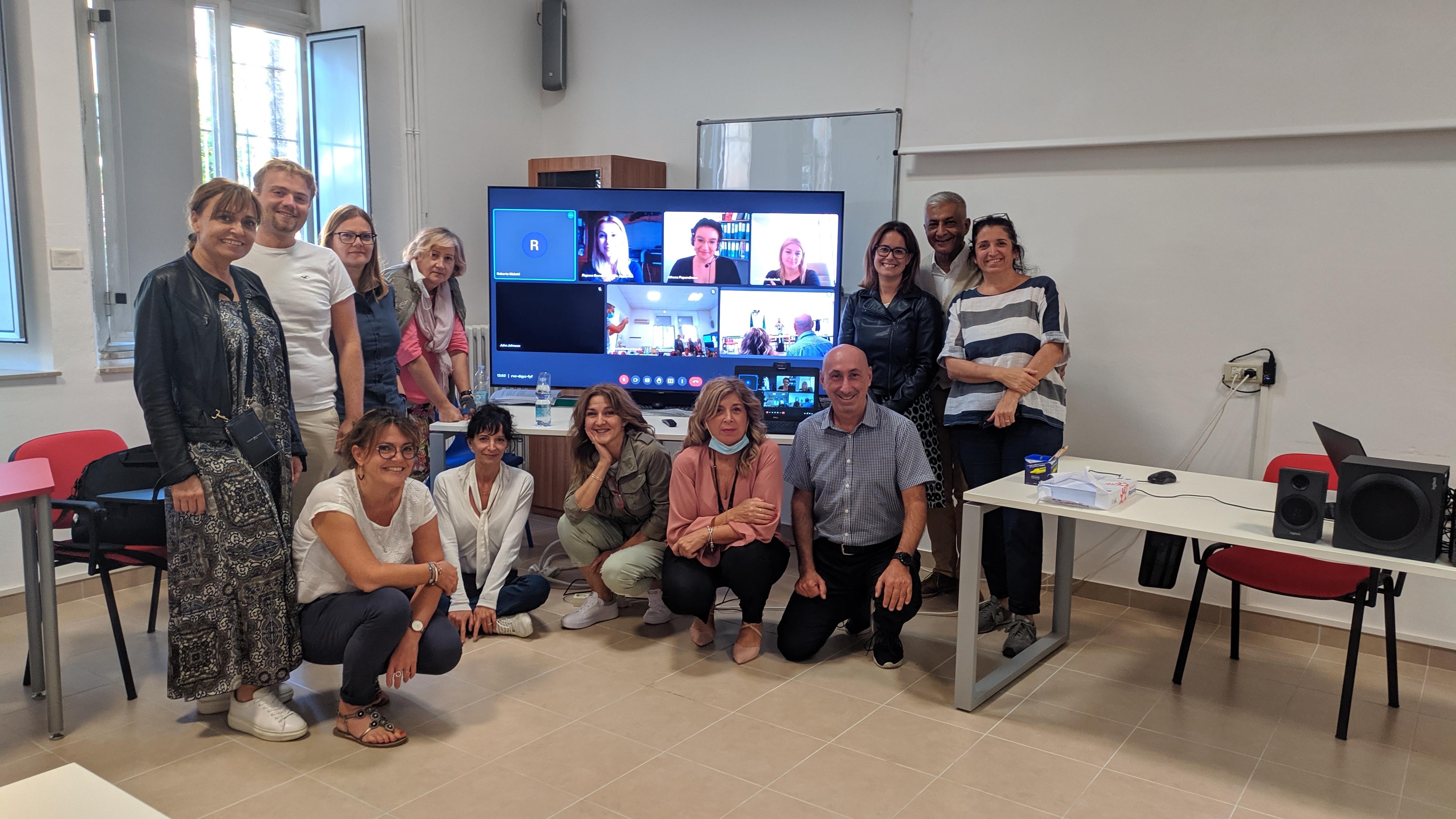
Topic(s) addressed
The project centred around an innovative multidisciplinary methodology and the use of digital tools. It also aimed to identify six key indicators associated with the EQAVET cycle stages that foster competence and entrepreneurial skills development. Finally, it conducted a comparison between digital and non-digital curricula.
Target group(s)
The initiative involved over 300 students and 20 piloting teachers. It also engaged class boards and partner institutions.
Methodologies
Our project designed interdisciplinary, competency-based curricula for L1 and L2 using innovative methodology. These curricula aimed to boost basic skills, language learning, and digital/entrepreneurial abilities, aligned with EQF levels and language standards. The approach fostered cooperation among students, making them active learners who improved their motivation, problem-solving skills, and peer review abilities. Teacher collaboration also enhanced effectiveness, supported by a toolbox of categorized digital resources for seamless integration into teaching and learning.
Innovation environment
The project's learning environments promoted innovation through cross-disciplinary cooperation and digital literacy in curriculum topics. Units like "Looking for a Job" encouraged creativity and real-life planning, while "Discover my Territory" emphasized outdoor education and environmental awareness. This enhanced cross-disciplinary collaboration and knowledge transfer, fostering a culture of Quality Assurance within educational institutions.
Teachers’ role
Teachers played a pivotal role in fostering innovation. They received training in competence-based curricula and digital competencies, integrating these into their teaching. They championed Quality Assurance (QA) aligned with EQAVET recommendations, serving as models for others. Using the EQAVET cycle and project toolkit's peer review tools, they measured teaching effectiveness, enabling further collaboration in innovative teaching methods.
Impact and output
The project significantly impacted teachers and students, fostering lifelong learning competencies, digital tool integration, and cooperative methodologies for improved teaching and learning. Students benefitted from tailored learning paths, especially those with learning difficulties. Stakeholders gained a deep EQAVET understanding, and the project's methodologies introduced quality assurance, innovation, and knowledge exchange, enhancing vocational education and training.
Video
- Reference
- 2020-1-IT01-KA202-008358
- Project locations
- Italy
- Project category
- Vocational education and training
- Project year
- 2023
Stakeholders
Coordinators
IIS Luigi di Savoia
- Address
- Italy
Participants
USR Abruzzo
- Address
- Italy
Dimitra Ekpaiditiki Simvilitiki Ae
- Address
- Greece
Die Berater Unternehmensberatungs Gesellschaft MBH
- Address
- Austria
Stiftelsen Kursverksamheten Vid U-Auniversitet
- Address
- Sweden
Académie D'orléans-Tours
- Address
- France
